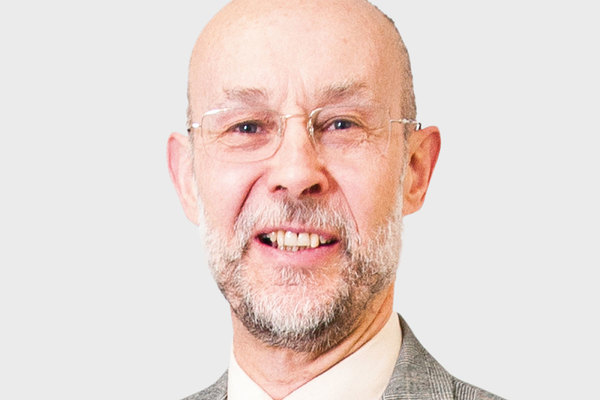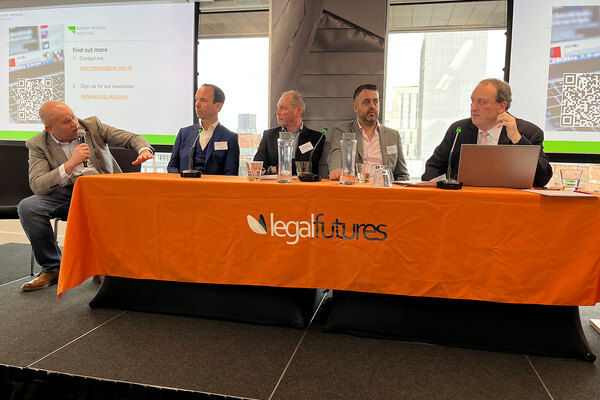You are viewing 1 of your 1 free articles

How Orbit is trying to tackle the climate emergency
With the climate emergency increasingly occupying the minds of the housing sector, Jessica Marshall, introduced by Neil Goodrich, explains what Orbit Group is doing to tackle the situation
Change can feel like it takes forever to come. But often it is the result of a long series of small steps that leads to a significant moment.
For this IH50 I’m delighted to hand over to Jessica Marshall, environmental impact co-ordinator at Orbit, who has been fundamental in the group’s redoubling efforts in relation to its environmental impact.
“I want you to panic. I want you to feel the fear that I feel every day. And then I want you to act. I want you to act as you would in a crisis. Because that is exactly what we are facing.
“According to the IPCC [the Intergovernmental Panel on Climate Change], we are less than 12 years away from being unable to undo our mistakes. In that time unprecedented changes in all aspects of society need to have taken place, including a reduction in CO2 emissions by at least 50%.”
These are the words of Greta Thunberg, global climate activist, at the World Economic Forum back in January.
It may be her age (16) that initially captured the world’s attention, but anyone who has read or heard her speak on pressing climate change issues will know it is her knowledge of the subject and ability to inspire, incite and mobilise change en masse that has proven her capabilities, irrespective of her years.
I too am passionate about environmental issues and equally concerned about what our world will look like in the next decade if we carry on ‘business as usual’.
At 27, I am also considered ‘young’ and just over a year ago I started to ask a few questions to this effect at Orbit. “What are we doing to protect the environment?”, “Can we do more?” and “How do I get involved?”
My enquiries were met with honesty (“we’re doing a little but could probably do more”) and encouragement (“if you want to take this forward, run with it!”) And so, after a few meetings (and some shrewd branding, that I cannot take credit for) Orbit Earth was born.
Orbit Earth is a programme to take responsibility for Orbit’s impact on the environment.
You may not naturally connect housing with having a significant impact on climate change, however about 40% of the UK’s total carbon footprint comes from the built environment.
A clear message that businesses, including housing associations, must act urgently to address this.
I was actively encouraged to pursue this while in my previous role and working closely with one of our directors, we began to raise awareness of Orbit Earth through engagement with staff at all levels – from our employee ambassadors to managers and our chief executive through meetings, face-to-face events and internal communications.
Although many liked the fact Orbit Earth is a ‘grassroots movement’, I soon learned that having a ‘bottom-up’ or ‘top-down’ approach wasn’t going to work. I needed to ensure Orbit Earth would become both fully embedded and successful.
The most effective way I have found to bring staff on board with what we are trying to achieve is to connect with them through conversations about environmental issues on a personal level.
A lot of people care about this subject and in my experience age is immaterial to this.
Orbit Earth has made huge strides in a short space of time – its brand and vision is recognised across the business, it has a dedicated full-time position to work on it (in May I moved roles to become environmental impact co-ordinator), has a set of commitments and a developing framework with KPIs and soon to be targets.
Ultimately it has started to make headway in Orbit becoming a more sustainable and responsible business.
That is not to say it hasn’t been without challenges. Asking people to take into account the environmental impact of their decisions as well as the already competing economic and social factors that are core to social housing is not easy.
“The most effective way I have found to bring staff on board with what we are trying to achieve is to connect with them through conversations about environmental issues on a personal level”
Thinking about something that will happen in years and decades to come and how our actions now will contribute to these can be hard to visualise.
Despite this, it is important to reiterate that these three factors are interlinked. Decisions that damage the environment will negatively impact our customers and operating reactively rather than proactively to prevent this will end up costing much more in all senses of the word.
Energy is an obvious example here – more energy-efficient homes using renewable energy technologies not only reduce carbon emissions, but they also improve comfort and health and help prevent fuel poverty.
More than 75% of Orbit’s homes have an energy efficiency EPC rating of C or above and we are working hard to make this figure increase a lot further.
I can’t begin to list the things I have learned by driving Orbit Earth so far. But I know that by doing something that you are genuinely passionate about and having the support of staff around you makes overcoming obstacles (of which there are many surrounding this subject) just that little bit easier.
Jessica Marshall, environmental impact co-ordinator, Orbit; and Neil Goodrich, chair, CIH Futures












